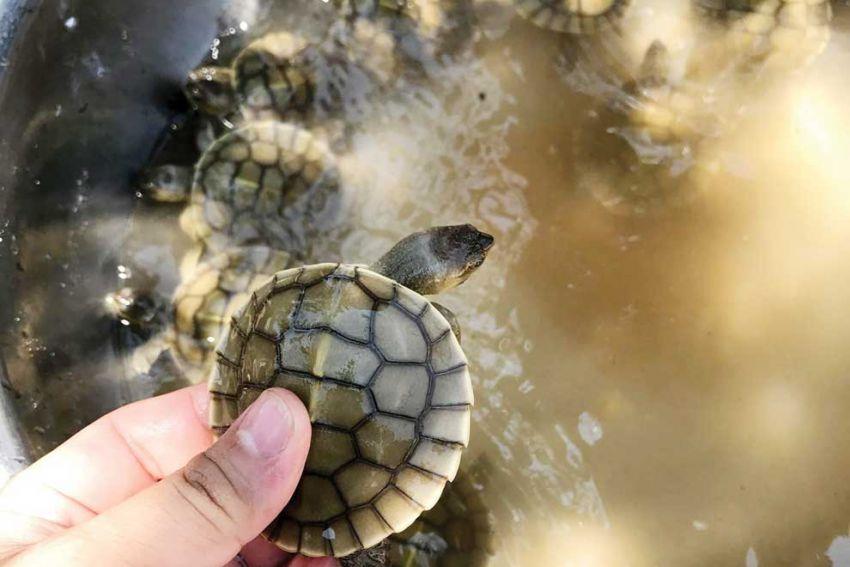PHNOM PENH, Feb. 19 (Xinhua) -- Conservationists have found a nest of the critically endangered Royal Turtle with 16 eggs on a sandbar along Sre Ambel River in southwest Cambodia's Koh Kong province, the Wildlife Conservation Society (WCS) said on Monday.
"This is the first nest of Royal Turtle found in 2018," the WCS said in a statement, adding that four local community rangers have been hired to guard it until the eggs hatch.
Listed on the International Union for Conservation of Nature (IUCN) Red List as critically endangered, Southern River Terrapin (Batagur affinis), locally known as the Royal Turtle, is one of the world's 25 most endangered tortoises and freshwater turtles.
The Royal Turtle is named because in the past only the royal family could consume its eggs, the statement said, adding that it is designated as Cambodia's national reptile by a royal decree in March 2005.
In Hul, an official of Cambodia's Fisheries Administration and project coordinator, said from January to March was the Royal Turtle's breeding period, and his team was working hard to search for its nests along the Sre Ambel River.
"If we find a nest, we will work with the local community to protect it until the eggs hatch and then bring the hatchlings to Koh Kong Reptile Conservation Center where they will be cared for until they are mature and can be released back to the wild," he said.
He said collection of Royal Turtle eggs or adults for consumption or sale is illegal in Cambodia.
Royal Turtle was believed extinct in Cambodia until 2000 when a small population was re-discovered by the Fisheries Administration and WCS in the Sre Ambel River.
"Despite success after the species was re-discovered in 2000, the Royal Turtle is still at high risk of extinction," said Som Sitha, WCS's technical advisor to the Koh Kong Conservation Project.
"The number of nests found each year is very low, with just three nests in the last two years," he said. "Illegal clearance of flooded forest and illegal fishing puts this species at risk. Everyone can help conserve our national reptile by not purchasing or eating their meat and eggs."
